vietnam
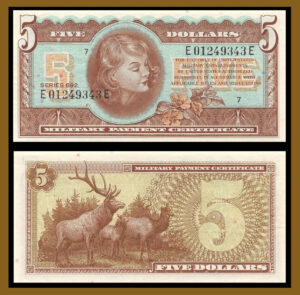 During World War II, and through the Vietnam War, the United States government was facing a situation with the US dollar that was different from prior years. It’s not something we really think about much, but it had to do with the fact that the countries the US Military was in were unsure of how their money was going to play out if they were one of the countries that fell. The dollar was stable, so they were happy to take payment in the US dollar over their own currency. In fact, the local civilians often accepted payment in dollars for less than the accepted conversion rates, meaning that they lost money in the deal. Dollars became more favorable to hold, which further inflated the local currencies, defeating plans to stabilize local economies. On top of that, troops were being paid in dollars, which they could
During World War II, and through the Vietnam War, the United States government was facing a situation with the US dollar that was different from prior years. It’s not something we really think about much, but it had to do with the fact that the countries the US Military was in were unsure of how their money was going to play out if they were one of the countries that fell. The dollar was stable, so they were happy to take payment in the US dollar over their own currency. In fact, the local civilians often accepted payment in dollars for less than the accepted conversion rates, meaning that they lost money in the deal. Dollars became more favorable to hold, which further inflated the local currencies, defeating plans to stabilize local economies. On top of that, troops were being paid in dollars, which they could 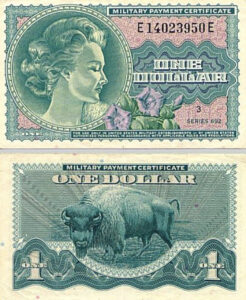 convert in unlimited amounts to the local currency with merchants at the floating (black market) conversion rate, which was much more than the government fixed conversion rate. It was rather a great money-making proposition, but really wasn’t ethical. This conversion rate imbalance allowed the servicemen to profit from the more favorable exchange rate.
convert in unlimited amounts to the local currency with merchants at the floating (black market) conversion rate, which was much more than the government fixed conversion rate. It was rather a great money-making proposition, but really wasn’t ethical. This conversion rate imbalance allowed the servicemen to profit from the more favorable exchange rate.
While anyone could understand how people would want to make money if they can, it was really going to be damaging to the local economy in the end. The MPCs were designed to stop the unfair conversion rate of currency. The scrip (MOCs) was changed out periodically, to avoid hoarding. Once they came out with a new version of scrip, the prior version became worthless. Another way they were supposed to eliminate the problem was that MPCs were only allowed to be used by military personnel in military facilities and approved locations. As a safeguard, if the MPCs 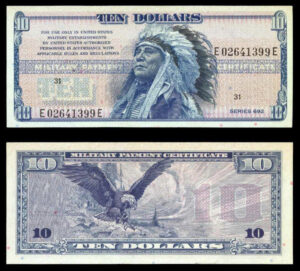 were converted to local currency, they were not allowed to be reconverted to MPCs, so the plan was useless. US MPCs were in use from 1946-1973 and were used in all overseas military locations.
were converted to local currency, they were not allowed to be reconverted to MPCs, so the plan was useless. US MPCs were in use from 1946-1973 and were used in all overseas military locations.
I was actually watching an episode of MASH this morning about this very thing. The men were buying up the old scrip from people who couldn’t get to the exchange. Of course, they bought it for less than its value, planning to cash in when they turned it in for its face value. The solution for that problem was that the military personnel were restricted to the base on C-Days…currency exchange days. I don’t know how much of the fraudulent exchanges were stopped in this way, but it might have stopped some.
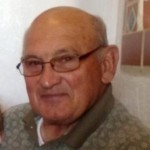
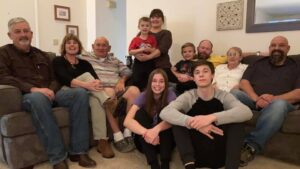 I married into the Schulenberg family almost 48 years ago. During the early years, when we would make trips to Forsyth, Montana to visit my husband, Bob Schulenberg’s family that lived there. One such visit was for a family reunion. It was at that reunion, that I first met my father-in-law, Walt Schulenberg’s half-brother, Butch Schulenberg. For many years, I didn’t see Butch again, and then when my father-in-law passed away in 2015, we were making calls to tell family of his passing. I spoke to Uncle Butch, and it was such a nice, even while sad, call, that Uncle Butch became a very dear uncle to me. I love his kind heart and his caring ways. I think everyone loves Butch Schulenberg, because that is the kind of man he is.
I married into the Schulenberg family almost 48 years ago. During the early years, when we would make trips to Forsyth, Montana to visit my husband, Bob Schulenberg’s family that lived there. One such visit was for a family reunion. It was at that reunion, that I first met my father-in-law, Walt Schulenberg’s half-brother, Butch Schulenberg. For many years, I didn’t see Butch again, and then when my father-in-law passed away in 2015, we were making calls to tell family of his passing. I spoke to Uncle Butch, and it was such a nice, even while sad, call, that Uncle Butch became a very dear uncle to me. I love his kind heart and his caring ways. I think everyone loves Butch Schulenberg, because that is the kind of man he is.
Uncle Butch is a veteran, having served in the Army during the Vietnam War. He was a respected member of 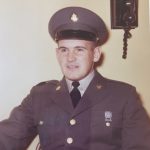
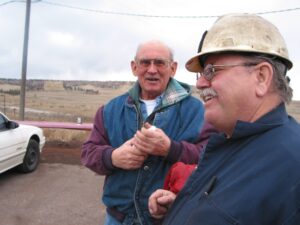 his company. Butch was chosen to be a driver for an officer. Butch told my husband, Bob and me several stories about his driving days in the service. He told us of so many interesting details that he was privileged to know, but at that time could not speak of. During war, the soldiers are very restricted on what information they can share, mostly because disclosing information could be a detriment to the whole company. Now that the war is long-over, the details of their operations are history…very interesting history. That is something Butch ad I have in common too…history. We both love the details of the past, and the impact they have had on the future. I am proud of his service. He is the kind of soldier this nation is blessed to have…and I’m very thankful he made it home.
his company. Butch was chosen to be a driver for an officer. Butch told my husband, Bob and me several stories about his driving days in the service. He told us of so many interesting details that he was privileged to know, but at that time could not speak of. During war, the soldiers are very restricted on what information they can share, mostly because disclosing information could be a detriment to the whole company. Now that the war is long-over, the details of their operations are history…very interesting history. That is something Butch ad I have in common too…history. We both love the details of the past, and the impact they have had on the future. I am proud of his service. He is the kind of soldier this nation is blessed to have…and I’m very thankful he made it home.
These days, Uncle Butch is busy enjoying his retirement, and going to visit his children and grandchildren. He 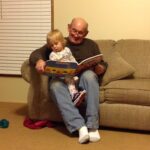
 loves taking pictures around his house in Forsyth, Montana. He is a huge fan of the local school sports teams and goes to or listens to as many games as he possibly can. He is one of their biggest fans. He is very community oriented. He loves his small town and feels very connected to all the people there. He is very much a loved member of the community, and he loves all of them too. Today is Butch’s 82nd birthday. Happy birthday Butch!! Have a great day!! We love you!!
loves taking pictures around his house in Forsyth, Montana. He is a huge fan of the local school sports teams and goes to or listens to as many games as he possibly can. He is one of their biggest fans. He is very community oriented. He loves his small town and feels very connected to all the people there. He is very much a loved member of the community, and he loves all of them too. Today is Butch’s 82nd birthday. Happy birthday Butch!! Have a great day!! We love you!!
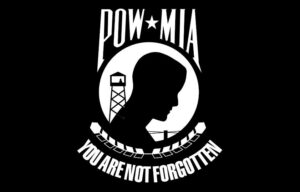 When a soldier goes missing in action, it becomes an unthinkable phenomenon for their family. Really, when anyone goes missing and can’t be found, it is unthinkable for the family, but for a soldier, it’s particularly strange, because we knew where they were and what they were doing, and their disappearance isn’t really connected with anything like an abduction. I suppose it could be classified that way, but Missing In Action (MIA), is not classified as an abduction, but rather an act of war. Often, they were killed in action, and someone other than their company took care of their body. Of course, there is also the possibility that they were taken prisoner of war, but when the prisoners are all released, and our loved one is not among them, we have to face the possibility that something else happened. Every war has its list of Prisoners Of War (POW), and its list of MIAs, and these are people that we hope will never be forgotten, so that maybe someday the truth about what happened can be found out. If they are forgotten, then it is a very real possibility that they will never be found.
When a soldier goes missing in action, it becomes an unthinkable phenomenon for their family. Really, when anyone goes missing and can’t be found, it is unthinkable for the family, but for a soldier, it’s particularly strange, because we knew where they were and what they were doing, and their disappearance isn’t really connected with anything like an abduction. I suppose it could be classified that way, but Missing In Action (MIA), is not classified as an abduction, but rather an act of war. Often, they were killed in action, and someone other than their company took care of their body. Of course, there is also the possibility that they were taken prisoner of war, but when the prisoners are all released, and our loved one is not among them, we have to face the possibility that something else happened. Every war has its list of Prisoners Of War (POW), and its list of MIAs, and these are people that we hope will never be forgotten, so that maybe someday the truth about what happened can be found out. If they are forgotten, then it is a very real possibility that they will never be found.
In every war, there are kind people who will bury the dead of the enemy right along with their own dead, but 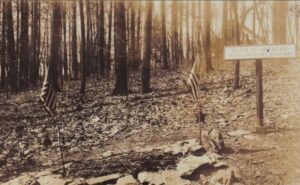 often they can’t read the names, so the dead are in an unmarked grave, possibly with their dog tags as the only definitive proof that the remains belong to that soldier. Some of those kind people have remembered where they buried the soldiers, and kept track of the proof of identity, so that maybe, somewhere down the road, they could reunite the soldier with his family…and some of those people have been returned to their families in recent years. The stories, when that happens, are so heart-warming. It reminds us once again, that there is good in this world, even if it’s harder to find these days.
often they can’t read the names, so the dead are in an unmarked grave, possibly with their dog tags as the only definitive proof that the remains belong to that soldier. Some of those kind people have remembered where they buried the soldiers, and kept track of the proof of identity, so that maybe, somewhere down the road, they could reunite the soldier with his family…and some of those people have been returned to their families in recent years. The stories, when that happens, are so heart-warming. It reminds us once again, that there is good in this world, even if it’s harder to find these days.
Of course, it is my opinion that no matter what, God knows where these lost ones are, and that someday people will be reunited with lost loved ones, either here on Earth, or later, in Heaven. That is something I have to believe when I think of anyone who has a lost loved one out there. I personally do not have a lost loved one out there…at least no one I knew personally. I have a great uncle (not sure how many greats) that went 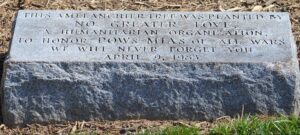 missing when he was forced into war as a result of the German government taking him in the middle of the night, but I never knew him personally. Nevertheless, I feel very sad for those people who have suffered such a loss as this. As of September 18, 2020, the American Battle Monuments Commission (ABMC) lists a total of 85,394 Americans MIA, including 4,422 from World War I, 71,692 from World War II, 7,717 from the Korean War, 1,561 from the Vietnam War. They don’t list any from other conflicts, whether there are missing ones or not.
missing when he was forced into war as a result of the German government taking him in the middle of the night, but I never knew him personally. Nevertheless, I feel very sad for those people who have suffered such a loss as this. As of September 18, 2020, the American Battle Monuments Commission (ABMC) lists a total of 85,394 Americans MIA, including 4,422 from World War I, 71,692 from World War II, 7,717 from the Korean War, 1,561 from the Vietnam War. They don’t list any from other conflicts, whether there are missing ones or not.
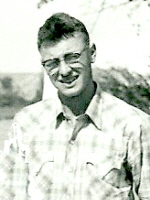
 My husband, Bob Schulenberg’s uncle, Butch Hein served in the US Navy during the Vietnam War. In all the years I have known him, and like most other veterans, Butch never talked about his time during that war. I don’t know where he spent his service years, but the main thing is that he made it home. Once home, Butch began to live the rest of his life.
My husband, Bob Schulenberg’s uncle, Butch Hein served in the US Navy during the Vietnam War. In all the years I have known him, and like most other veterans, Butch never talked about his time during that war. I don’t know where he spent his service years, but the main thing is that he made it home. Once home, Butch began to live the rest of his life.
He married the love of his life, Bonnie Wertz, and together they began planning their future lives. Bonnie soon became pregnant with their first child, and on November 5, 1969, their son, Scott was born. Life was perfect…for a time, but unfortunately it would not stay that way for long. While pregnant with their daughter, Crista, Bonnie was diagnosed with cancer. Like most mom’s she tried to wait it out, so she could give their daughter life, but in the end, both were lost. Butch’s heart was broken, and while he tried to move on with his life, and succeeded with his son, he really was never happy in a relationship again. Bonnie was his forever love. Nevertheless, Butch is very happy with his son. They are best friends and business partners in the ranching business they own together.
Scott grew up and married Terri Wiederrick. They now have three grown children, Laura, Carson, and Lindsey. Butch’s life has made a wonderful turnaround. Having these three grandchildren has been the highlight of his life. Scott built his house on the same property as his dad, so for much of the kids’ lives, they were right beside their grandpa. It was one of the greatest gifts Scott and Terri could have given his dad. Butch has been able to be a big part of his grandchildren’s lives, and they all love him very much.
Now that they are grown, the grandchildren are moving on with their lives. Laura is a teacher and lives a few hours away, Carson is working on a ranch in the area, and Lindsey is away at college. I think the empty nest 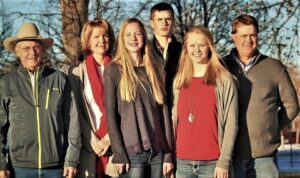
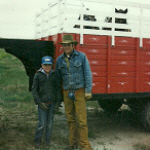 syndrome might apply not only to their parents, but to their grandpa as well. That happens when the grandparents are very close. It happened to me when my own grandchildren became adults, and while we are still close, it is more from a distance these days. I have a feeling Butch is finding himself in the same place. Happy, but a little sad too. Today is Butch’s 77th birthday. Happy birthday Butch. Have a great day!! We love you!!
syndrome might apply not only to their parents, but to their grandpa as well. That happens when the grandparents are very close. It happened to me when my own grandchildren became adults, and while we are still close, it is more from a distance these days. I have a feeling Butch is finding himself in the same place. Happy, but a little sad too. Today is Butch’s 77th birthday. Happy birthday Butch. Have a great day!! We love you!!
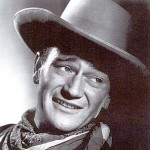
 Most people, these days, have probably never heard of Marion Robert Morrison, although I’ll bet that most people have seen at least one of his movies, or at the very least a commercial advertising one of his movies on some of the old movie channels. Maybe if I said that his name was John Wayne or even The Duke (his famous nickname), more people would recognize the famous American West actor. John Wayne actually became the epitome of the American West. Wayne was born on May 26, 1907, at 224 South Second Street in Winterset, Iowa, to Clyde Leonard Morrison (1884–1937), who was the son of American Civil War veteran Marion Mitchell Morrison (1845–1915), and the former Mary “Molly” Alberta Brown (1885–1970), who was from Lancaster County, Nebraska. He weighed a whopping 13 pounds at birth. Wayne claimed his middle name was soon changed from Robert to Michael when his parents decided to name their next son Robert. That fact, if it is a fact, cannot be confirmed even with extensive research, because no such legal change was found. Wayne’s legal name remained Marion Robert Morrison his entire life, but he often went by Marion Michael Morrison…before becoming John Wayne.
Most people, these days, have probably never heard of Marion Robert Morrison, although I’ll bet that most people have seen at least one of his movies, or at the very least a commercial advertising one of his movies on some of the old movie channels. Maybe if I said that his name was John Wayne or even The Duke (his famous nickname), more people would recognize the famous American West actor. John Wayne actually became the epitome of the American West. Wayne was born on May 26, 1907, at 224 South Second Street in Winterset, Iowa, to Clyde Leonard Morrison (1884–1937), who was the son of American Civil War veteran Marion Mitchell Morrison (1845–1915), and the former Mary “Molly” Alberta Brown (1885–1970), who was from Lancaster County, Nebraska. He weighed a whopping 13 pounds at birth. Wayne claimed his middle name was soon changed from Robert to Michael when his parents decided to name their next son Robert. That fact, if it is a fact, cannot be confirmed even with extensive research, because no such legal change was found. Wayne’s legal name remained Marion Robert Morrison his entire life, but he often went by Marion Michael Morrison…before becoming John Wayne.
When he was six years old, Wayne’s family moved to Glendale, California, where he like many teens in those days, had a paper route that got him up at four in the morning to deliver newspapers. After school, he played football and made deliveries for local stores. After high school, he had big ambitions to attend the U.S. Naval Academy, but his dreams were dashed when they rejected him. Then, he accepted a full scholarship to play football at the University of Southern California in Los Angeles, which is quite likely the very thing that led to his entire future, and not in football or academics.
For most football players, having a job isn’t an easy feat, because of the football and study schedules, so in the summer of 1926, Wayne’s football coach found him a job as an assistant prop man on the set of a movie directed by John Ford. Ford saw something more is the handsome young football player, and he started to use Wayne as an extra in his films. It’s strange, maybe, that I think that John Wayne became more handsome as he got older. The younger verson, while handsome, lacked the character that really defines some men. That led to larger roles, and in 1930, Ford recommended John Wayne for Fox’s epic Western, “The Big Trail.” Wayne won the part, but the movie did poorly, and Fox let his contract lapse. That didn’t deter John Wayne, who had by then been bitten by the acting bug. Over the next decade, he worked tirelessly on a number of low-budget films, to improve his acting abilities, and in the end, his old friend and mentor, John Ford gave him his big break, when he cast him in the 1939 western, “Stagecoach.” The rest is history, as John Wayne starred in more than 77 movies. Including my favorites, “Maclintock,” “True Grit,” “The Sons of Katie Elder,” and “Hell Fighters.” While John Wayne got his start in Westerns, he also did a number of military movies. It wasn’t hard to transition from a valiant cowboy or cavalry soldier to the brave WWII fighters of films like Sands of Iwo Jima (1949) and Flying Leathernecks (1951). John Wayne was deeply conservative in his politics, and he used his 1968 film, The Green Berets, to express his support of the American government’s war in Vietnam.
Unfortunately, by the late 1960s, some Americans had tired of Wayne and his simplistically masculine and patriotic characters. I simply cannot understand that at all, except that people had started to look for the increasingly sinister in movies. Sadly, western movies began rejecting the simple black-and-white moral codes championed by Wayne and replacing them with a more complex and tragic view of the American West…not a good move for the people. Nevertheless, John Wayne proved more adaptable than many expected. True Grit 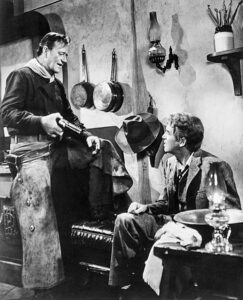
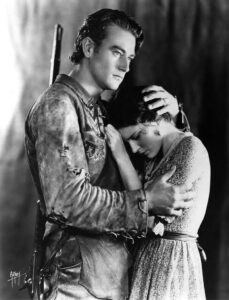 (1969) allowed him to escape the narrow confines of his own good-guy image, but still remain basically “the good guy” in reality. Nevertheless, John Wayne was entering the final years of his life, whether he knew it or not. His final film, The Shootist (1976), proved once and for all that he was an actor who had earned the right to be called elite, when he won over even his most severe critics. At the time of the filming of “The Shootist,” John Wayne was battling lung cancer, while playing the part of a dying gunfighter whose moral codes and principles no longer fit in a changing world. Three years later, Wayne died of cancer. To this day, public polls identify him as one of the most popular actors of all time.
(1969) allowed him to escape the narrow confines of his own good-guy image, but still remain basically “the good guy” in reality. Nevertheless, John Wayne was entering the final years of his life, whether he knew it or not. His final film, The Shootist (1976), proved once and for all that he was an actor who had earned the right to be called elite, when he won over even his most severe critics. At the time of the filming of “The Shootist,” John Wayne was battling lung cancer, while playing the part of a dying gunfighter whose moral codes and principles no longer fit in a changing world. Three years later, Wayne died of cancer. To this day, public polls identify him as one of the most popular actors of all time.
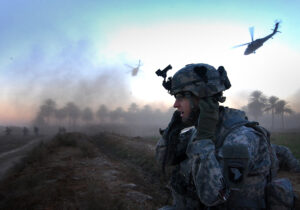 When the United States Army sends in the Army Special Forces, they are sending their very best people. It’s not that all of our soldiers aren’t the best in the world, because they are, but the Special Forces, also known as the “Green Berets” due to their distinctive service headgear, are a special operations force of the United States Army that are “designed to deploy and execute nine doctrinal missions: unconventional warfare, foreign internal defense, direct action, counter-insurgency, special reconnaissance, counter-terrorism, information operations, counterproliferation of weapons of mass destruction, and security force assistance. The first two missions, unconventional warfare and foreign internal defenses, emphasize language, cultural, and training skills in working with foreign troops. Other Special Forces missions, known as secondary missions, include: combat search and rescue (CSAR), counter-narcotics, hostage rescue, humanitarian assistance, humanitarian demining, information operations, peacekeeping, and manhunts.” Normally, the Special Forces teams are the ones sent in to rescue the other
When the United States Army sends in the Army Special Forces, they are sending their very best people. It’s not that all of our soldiers aren’t the best in the world, because they are, but the Special Forces, also known as the “Green Berets” due to their distinctive service headgear, are a special operations force of the United States Army that are “designed to deploy and execute nine doctrinal missions: unconventional warfare, foreign internal defense, direct action, counter-insurgency, special reconnaissance, counter-terrorism, information operations, counterproliferation of weapons of mass destruction, and security force assistance. The first two missions, unconventional warfare and foreign internal defenses, emphasize language, cultural, and training skills in working with foreign troops. Other Special Forces missions, known as secondary missions, include: combat search and rescue (CSAR), counter-narcotics, hostage rescue, humanitarian assistance, humanitarian demining, information operations, peacekeeping, and manhunts.” Normally, the Special Forces teams are the ones sent in to rescue the other 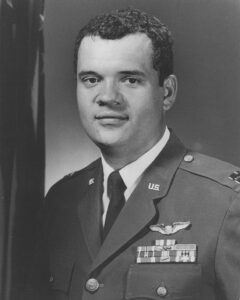 soldiers, or at least to drag them out of a sticky situation, but on this occasion, it was the Special Forces team that needed to be rescued.
soldiers, or at least to drag them out of a sticky situation, but on this occasion, it was the Special Forces team that needed to be rescued.
While returning to base from another mission, Air Force 1st Lieutenant James P Fleming and four other Bell UH-1F helicopter pilots received an urgent message from an Army Special Forces team. The pilots were told that the team was pinned down by enemy fire. Several of the other helicopter pilots had to leave the area because they were low on fuel, but Lieutenant Fleming and another pilot pressed on with the rescue effort. While the first attempt failed because of intense ground fire, they refused to abandon the Army green berets. Then, Fleming managed to land and pick up the team. Against all odds, he safely arrived at his base near Duc Co, at which time it was discovered that his helicopter was nearly out of fuel. For his lifesaving efforts, Lieutenant Fleming was later awarded the Medal of Honor for his actions. It was a selfless act, that could have cost him his life, but Lieutenant Fleming didn’t even consider his own life. He only thought about the others.
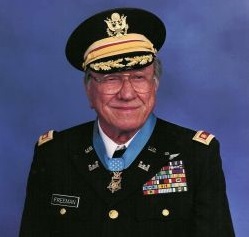
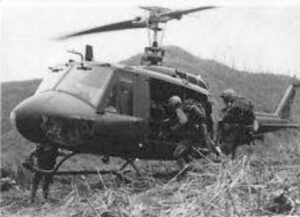 Ed Freeman first served in the military during World War II, in the United States Navy on the USS Cacapon (AO-52). While World War II was in no way uneventful or unimportant, it was not the most eventful part of Freeman’s service. Freeman decided to continue on in the military. Freeman had reached the rank of first sergeant by the time the Korean War began. By this time Freeman was in the Corps of Engineers, but his company fought as infantry soldiers in Korea. Freeman found himself fighting in the Battle of Pork Chop Hill, where he earned a battlefield commission as one of only 14 survivors out of 257 men who made it through the opening stages of the battle. His second lieutenant bars were pinned on by General James Van Fleet personally. He was given command of B Company and led them back up Pork Chop Hill.
Ed Freeman first served in the military during World War II, in the United States Navy on the USS Cacapon (AO-52). While World War II was in no way uneventful or unimportant, it was not the most eventful part of Freeman’s service. Freeman decided to continue on in the military. Freeman had reached the rank of first sergeant by the time the Korean War began. By this time Freeman was in the Corps of Engineers, but his company fought as infantry soldiers in Korea. Freeman found himself fighting in the Battle of Pork Chop Hill, where he earned a battlefield commission as one of only 14 survivors out of 257 men who made it through the opening stages of the battle. His second lieutenant bars were pinned on by General James Van Fleet personally. He was given command of B Company and led them back up Pork Chop Hill.
It was Freeman’s childhood dream to become a pilot, and his new commission made him eligible to become a pilot. Nevertheless, there was one drawback. When he applied for pilot training he was told that, at six feet four inches, he was “too tall” for pilot duty. That phrase stuck, and he became known as “Too Tall” for the rest of his career. It was a devastating setback, but in 1955, the height limit for pilots was raised and Freeman was finally accepted into flight school. He first flew fixed-wing army airplanes, but later switched to helicopters. When the Korean War ended, he flew the world on mapping missions.
By this time, Ed W. “Too Tall” Freeman had already had many success stories, but his real success story came during the Vietnam War, during the Battle of Ia Drang, specifically on November 14, 1965. During the battle, there were multiple men injured and the possibility of them dying was very real. Their unit was outnumbered 8-1 and the enemy fire on the men on the ground was so intense from 100 yards away, that the Commanding Officer ordered the MedEvac helicopters to stop coming in. That was basically a death sentence for the wounded men. The men were at LZ X-Ray, one of the most legendary war sites in Vietnam. It was here that the United States had its first major battle with the North Vietnamese People’s Army of Vietnam, the first very violent round of a bout that would last ten more years. There was really no way for the MedEvac helicopters to save them. Enter, Captain Ed Freeman, who was not a MedEvac pilot, by the way. Nevertheless, that did not stop him. He could not leave a man behind, much less 29 men. That this was not his job, meant nothing to Freeman, who heard the radio call and decided he was going to fly his Huey down into the machine gun fire anyway. He had not been given orders not to go, because he was not a MedEvac pilot, so he went. Those men soon knew that Captain Ed Freeman was coming in for them. Freeman dropped his Huey in and sat there in the machine gun fire, as they loaded 3 men at a time on board. Then, he flew up and out through the gunfire to get these men to the medical teams safety. And, he didn’t go in just once!! He kept going back…13 more times!! He went in until all the wounded were out. No one knew until the mission was over that the Captain had been hit 4 times in the legs and left arm.
Ed “Too Tall” Freeman was born on November 20, 1927 in Neely, Mississippi, the sixth of nine children. At the age of 13, he saw thousands of men on maneuvers pass by his home in Mississippi. He knew then that he wanted to become a soldier. Freeman grew up in nearby McLain, Mississippi, and graduated from Washington High School, however, at age 17, before graduating from high school, Freeman served in the United States Navy for two years. He then returned to his hometown and graduated from high school after the war. He joined the United States Army in September 1948, and married Barbara Morgan on April 30, 1955. They had two sons. Mike was born in 1956, and Doug was born in 1962.
Freeman’s commanding officer nominated him for the Medal of Honor for his actions at Ia Drang on November 14, 1965. Unfortunately, not in time to meet a two-year deadline in place at that time. He was instead awarded the Distinguished Flying Cross. The Medal of Honor nomination was disregarded until 1995, when the two-year 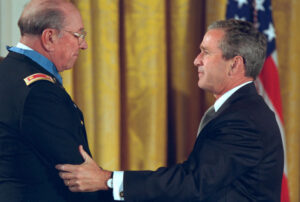
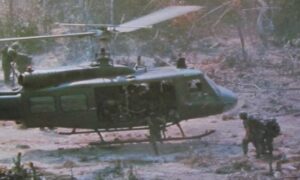 deadline was removed. He was finally and formally presented with the medal on July 16, 2001, in the East Room of the White House by President George W. Bush. Freeman died on August 20, 2008, due to complications from Parkinson’s disease. He was buried with full military honors at the Idaho State Veterans Cemetery in Boise.
deadline was removed. He was finally and formally presented with the medal on July 16, 2001, in the East Room of the White House by President George W. Bush. Freeman died on August 20, 2008, due to complications from Parkinson’s disease. He was buried with full military honors at the Idaho State Veterans Cemetery in Boise.
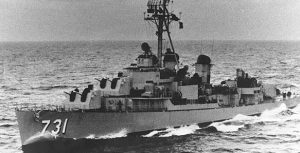 I was a born in the early days of the Vietnam War, so much of those early war years went unnoticed…by me anyway. The war official began on November 1, 1955, but there was much turmoil in the years leading up to the actual beginning of the war. It was an unpopular war, and probably the biggest news in the United States was the many protests against the war.
I was a born in the early days of the Vietnam War, so much of those early war years went unnoticed…by me anyway. The war official began on November 1, 1955, but there was much turmoil in the years leading up to the actual beginning of the war. It was an unpopular war, and probably the biggest news in the United States was the many protests against the war.
Nevertheless, there were some big operations that took place in the Vietnam War years. One such operation was Operation Plan (Oplan) 34A, and it was initiated on February 1, 1964, by the United States and the South Vietnamese. The plan called for raids by South Vietnamese commandos, operating under American orders, against North Vietnamese coastal and island installations. In this operation, the American forces were not directly involved in the actual raids, but United States Navy ships were on station to conduct electronic surveillance and monitor North Vietnamese defense responses under another program called Operation De Soto.
The Oplan 34A attacks played a major role in events that would eventually lead to what became known as the Gulf of Tonkin Incident. On August 2, 1964, North Vietnamese patrol boats, in response to an Oplan 34A attack by South Vietnamese gunboats against the North Vietnamese island of Hon Me, attacked the destroyer USS 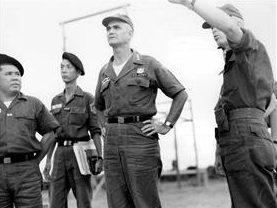 Maddox. The Maddox was conducting a De Soto mission in the area. Then, just two days after the first attack, there was another incident, but that attack remains unclear. The Maddox, joined by destroyer USS C. Turner Joy, engaged what were thought to be more attacking North Vietnamese patrol boats.
Maddox. The Maddox was conducting a De Soto mission in the area. Then, just two days after the first attack, there was another incident, but that attack remains unclear. The Maddox, joined by destroyer USS C. Turner Joy, engaged what were thought to be more attacking North Vietnamese patrol boats.
There is some question as to whether or not the second attack actually happened, but the incident provided the rationale for retaliatory air attacks against the North Vietnamese and the subsequent Tonkin Gulf Resolution. That became the basis for the initial escalation of the war in Vietnam, and ultimately brought about the insertion of United States combat troops into the area.
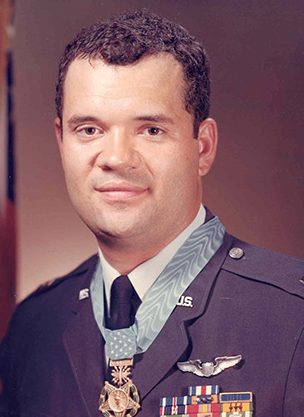 Our instincts tell us not to leave a man down, or behind. That doesn’t just apply just to military personnel. Nevertheless, military personnel have had that concept ingrained into their being…probably more so than the rest of us. It is a code for them…never leave a man behind…whenever they have any say about it, they don’t. 1st Lieutenant James P Fleming was no different. In fact, Fleming was exceptional. Fleming was a helicopter pilot during the Vietnam War. On November 26, 1968, Fleming and four other UH-1F helicopter pilots were returning to their base at Duc Co, South Vietnam, for refueling and rearming when an emergency call for help was received from a Special Forces reconnaissance team.
Our instincts tell us not to leave a man down, or behind. That doesn’t just apply just to military personnel. Nevertheless, military personnel have had that concept ingrained into their being…probably more so than the rest of us. It is a code for them…never leave a man behind…whenever they have any say about it, they don’t. 1st Lieutenant James P Fleming was no different. In fact, Fleming was exceptional. Fleming was a helicopter pilot during the Vietnam War. On November 26, 1968, Fleming and four other UH-1F helicopter pilots were returning to their base at Duc Co, South Vietnam, for refueling and rearming when an emergency call for help was received from a Special Forces reconnaissance team.
While en route, they got a call that a six-man Special Forces team was pinned down by a large, hostile force not far from a river bank. The homebound force of two gunships and three transport helicopters immediately changed course and sped to the area without refueling. As the gunships descended to attack the enemy positions, one was hit and downed. The remaining gunship made several passes, rapidly firing with its miniguns, but the intense 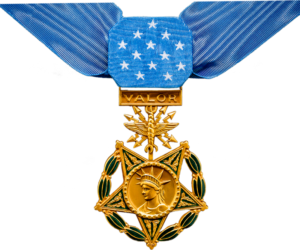 return fire from enemy machine guns continued. Finally, low on fuel, the helicopters were being forced to leave and return to base.
return fire from enemy machine guns continued. Finally, low on fuel, the helicopters were being forced to leave and return to base.
Lieutenant Fleming alone remained as the only transport helicopter left. He descended over the river to evacuate the team. Upon arrival, he found the area unsafe for landing because of the dense foliage, so he hovered just above the river with his landing skids braced against the bank. The lone gunship continued its strafing runs, but heavy enemy fire prevented the team from reaching the helicopter. Fleming’s leader advised him to withdraw. After pulling away, Lieutenant Fleming decided to make another rescue attempt before completely exhausting his fuel. He dropped down to the same spot and found that the team had managed to move closer to the river bank. The men dashed out and clambered aboard as bullets pierced the air, some 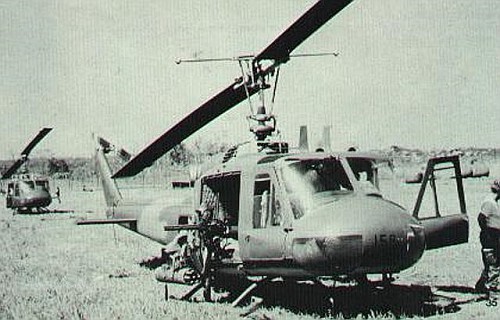 smashing into the helicopter. The rescue craft and the gunship then returned to Duc Co where it was discovered that they were nearly out of fuel.
smashing into the helicopter. The rescue craft and the gunship then returned to Duc Co where it was discovered that they were nearly out of fuel.
It was truly a miraculous rescue, in which not a single life was lost. Lieutenant Fleming was awarded the Medal of Honor for saving the lives of the special forces team that day. For his actions, Fleming received the Medal of Honor in May, 1970. Fleming remained in the Air Force serving a total of 30 years, becoming a colonel and a member of the Officer Training School staff at Lackland Air Force Base, Texas, before his retirement in 1996 at the rank of Colonel.
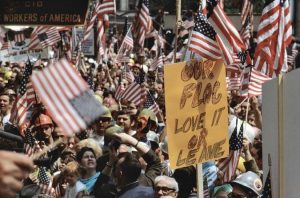 These days, patriotism seems to be constantly under fire. The nation has basically taken sides on the issue. There are those who hate this country and all it stands for, and those who love this country despite its faults and any negative historical events. I am a patriot, and it is my belief that history is history, mistakes and all. It can’t be changed by tearing down a few statues, and certainly not by stomping on our flag. The patriots of this time feel the same as the patriots of the Vietnam era…”Our Flag, Love it or Leave.” I find it strange to think that this era is really no different than that era, or any other era of American history, or in fact, in the history of any nation. There are those who love their nation and are loyal to it, and those who tend to blow with the wind…only showing faithfulness when it suits their own agenda. In my opinion and the opinion of every patriot, these people who turn on our country just because things aren’t going their way, are traitors, and should be treated as such.
These days, patriotism seems to be constantly under fire. The nation has basically taken sides on the issue. There are those who hate this country and all it stands for, and those who love this country despite its faults and any negative historical events. I am a patriot, and it is my belief that history is history, mistakes and all. It can’t be changed by tearing down a few statues, and certainly not by stomping on our flag. The patriots of this time feel the same as the patriots of the Vietnam era…”Our Flag, Love it or Leave.” I find it strange to think that this era is really no different than that era, or any other era of American history, or in fact, in the history of any nation. There are those who love their nation and are loyal to it, and those who tend to blow with the wind…only showing faithfulness when it suits their own agenda. In my opinion and the opinion of every patriot, these people who turn on our country just because things aren’t going their way, are traitors, and should be treated as such.
There have been a number of traitors in our nations history, and I’m sure there will be many more, but one of the most famous of them all was Benedict Arnold. On this day in 1780, during the American Revolution, an American General named Benedict Arnold met with a British Major named John Andre to discuss the treasonous act of handing over West Point to the British. In return Arnold was promised of a large sum of money and a high position in the British army. The plot was foiled and Arnold, who was once considered an American hero, became synonymous with the word “traitor.” Benedict Arnold was not always a low life traitor. He was actually 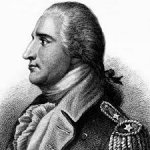 born into a well-respected family in Norwich, Connecticut, on January 14, 1741. He apprenticed with an apothecary and was a member of the militia during the French and Indian War from 1754 to 1763. Later, he became a successful trader and then joined the Continental Army when the Revolutionary War broke out between Great Britain and its 13 American colonies in 1775. When the war ended in 1783, the colonies had won their independence from Britain and formed a new nation…the United States.
born into a well-respected family in Norwich, Connecticut, on January 14, 1741. He apprenticed with an apothecary and was a member of the militia during the French and Indian War from 1754 to 1763. Later, he became a successful trader and then joined the Continental Army when the Revolutionary War broke out between Great Britain and its 13 American colonies in 1775. When the war ended in 1783, the colonies had won their independence from Britain and formed a new nation…the United States.
During the war, Benedict Arnold proved himself a brave and skillful leader, helping Ethan Allen’s troops capture Fort Ticonderoga in 1775 and then participating in the unsuccessful attack on British Quebec later that year, which earned him a promotion to brigadier general. Arnold distinguished himself in campaigns at Lake Champlain, Ridgefield and Saratoga, and gained the support of George Washington. However, Arnold also had some enemies within the military and in 1777, five men of lesser rank were promoted over him. I see that there were those who were not fooled by his presumed loyalty. Over the course of the next few years, Arnold married for a second time. He and his new wife lived a lavish lifestyle in Philadelphia, accumulating a large amount of debt. The debt and the resentment Arnold felt over not being promoted faster were the motivating factors in his decision to become a turncoat.
In 1780, Arnold was given command of West Point, an American fort on the Hudson River in New York, and future home of the United States military academy, which was established in 1802. Arnold contacted Sir Henry 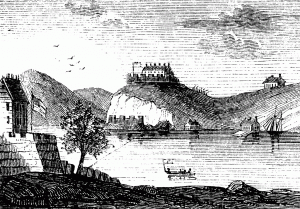 Clinton, head of the British forces, and proposed handing over West Point and his men. On September 21, 1780, Arnold met with Major John Andre and made his traitorous pact. Thankfully, the conspiracy was uncovered and Andre was captured and executed. Arnold, the former American patriot turned traitor, fled to the enemy side and went on to lead British troops in Virginia and Connecticut. He later moved to England, though he never received all of what he’d been promised by the British. He died in London on June 14, 1801, having never realized the greatness he thought he would achieve. Now, when people think of a traitor, they often call them a Benedict Arnold. It is a huge insult to be called that.
Clinton, head of the British forces, and proposed handing over West Point and his men. On September 21, 1780, Arnold met with Major John Andre and made his traitorous pact. Thankfully, the conspiracy was uncovered and Andre was captured and executed. Arnold, the former American patriot turned traitor, fled to the enemy side and went on to lead British troops in Virginia and Connecticut. He later moved to England, though he never received all of what he’d been promised by the British. He died in London on June 14, 1801, having never realized the greatness he thought he would achieve. Now, when people think of a traitor, they often call them a Benedict Arnold. It is a huge insult to be called that.

